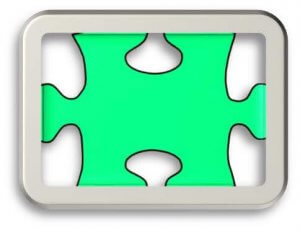
Eating disorders are thought of as serious mental illnesses that involve chaotic eating behaviour’s. This could see you eating large amounts of food all at once, eating very little quantities of food, even getting rid of the food eaten by what we know as purging, laxative misuse and also includes fasting or excessive exercise and/or a combination of these behaviours.
While we use eating disorders to explain the connection to food it is important to remind ourselves that emotions and feelings play a huge amount of importance. The person’s relationship to food may help them manage difficult emotions and might even make them feel more in control of their life, so they may be affected by an underlying emotional disorder.
It is unsurprising to learn then that eating disorders can also lead to self-harm and often occurs during times of heightened anxiety, anger, misery, fear, worry, depression or low self-esteem.
Although it is difficult to pin-point a reasoning for developing an eating disorder it would seem to be a mixture of both genetic and emotional reasons. It can be seen that some personality types may struggle more than others so those with make-up of perfectionism or obsessional individualities may be at higher risk along with life-experiences such as feelings of powerlessness and low self-esteem.
Eating disorders are often explained using labels but these can be extremely harmful. What is important to remember is that anyone can progress to an eating disorder. It is true that young women may be expected to develop an eating disorder especially in their teen and early adult stages of life (12 to 24), but neither age, gender, ethnicity nor cultural background should be classed as a barrier from developing this particular mental illness.
In fact it is thought there are a number of people who suffer alone, for example, men, children and older people and those from cultural or ethnic minorities due mainly to finding it difficult to talk about and therefore seek help.
There are three main types of eating disorders, anorexia nervosa, bulimia nervosa and binge eating disorders. However, it is quite common for people to be diagnosed with ‘other specified feeding or eating disorder’ (OSFED).
There is another possibly dangerous eating disorder that is recognised through its combination of having an eating disorder along with Type 1 diabetes illness. It is known as Diabulimia and usually has three conditions to its development;
- The person will have Type 1 diabetes
- They will have a fear that the use of insulin which they need to regulate Type 1 diabetes will lead to them gaining weight
- Their fear is so strong that they will skip their insulin usage
There is little known about this condition but it is so dangerous that it can be fatal. As with all the eating disorders, they have the highest mortality rate of any other psychiatric disorder.
As with all eating disorders you may have;
- body image issues
- anxiety
- depression
- mood swings
- fatigue
- frequent infections — bladder, yeast, etc.
- low self-esteem
- lack of confidence
It is estimated that 40 per cent of all women between the ages of 15-30 with Type 1 diabetes give themselves less insulin in order to lose weight. But it’s not just women that can be affected by Diabulimia. Research by Svensson et al (2003) shows that men with Type 1 diabetes have a ‘higher drive for thinness’ than their non-diabetic counterparts, making them more susceptible to Diabulimia.
The first step, then, is to take the risk of accepting that you are in difficulty. Early help is important and can impact on your recovery so please, in the first instance speak to your GP, who will support and refer you to a specialist agency or speak to the Health and Wellbeing Team. You can also contact;
SYEDA Sheffield
26-28 Bedford Street
Sheffield
S6 3BT
0114 272 8822
SYEDA also operate out of;
Barnsley MIND
Arcadia House
72 Market Street
Barnsley
S70 1SN
01226 2111 88/0114 272 8822
Ferham Annexe (part of Ferham Clinic)
Kimberworth Road
Rotherham
S61 1AJ
0114 272 8822
Resources
info@syeda.org.uk
https://www.beateatingdisorders.org.uk/
https://www.nationaleatingdisorders.org/
http://dwed.org.uk/ (Diabetics with Eating Disorders)
Television programmes on the subject;
https://www.bbc.co.uk/iplayer/episode/b09d5nk2/louis-theroux-talking-to-anorexia
https://www.bbc.co.uk/iplayer/episode/p05gh0lf/diabulimia-the-worlds-most-dangerous-eating-disorder#
Ref: Svensson, M., Engström, I., & Åman, J. (2003). Higher drive for thinness in adolescent males with insulin‐dependent diabetes mellitus compared with healthy controls. Acta Paediatrica, 92(1), 114-117.
Last updated: 20th July 2022

